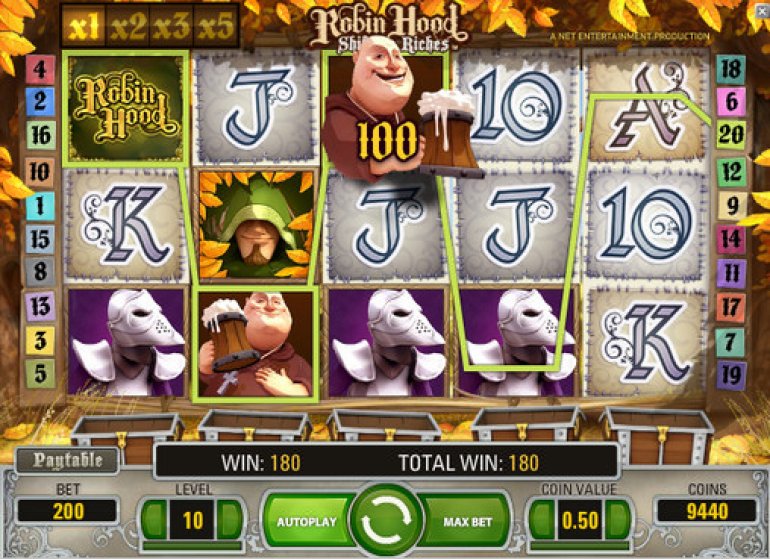How to Choose a Reliable Casino
How to Choose a Reliable Casino
Tesla’s strategy is built around sustainability and innovation. By focusing on electric vehicles and clean energy, they’ve not only carved out a unique niche but also positioned themselves as leaders in the fight against climate change https://tysonhistory.com/.
For instance, an AI innovation leader technology company would have to create a mission statement that will clearly define its vision for technology innovation, research, and customer-oriented solutions. Without vision and mission, companies can fail to align strategies with growth targets and market demands.
Roger’s approach to strategy has led to his recognition as one of today’s leading management thinkers. He’s helped countless companies, nonprofits, and organizations of all types achieve lasting business success. Now, his approach is at the center of our course, Designing Strategy, created in collaboration with Roger and his longtime colleague Jennifer Riel, also an advisor, professor, author, and IDEO’s global director of strategy.
It should be stressed that the quality of the responses is critical. Best-in-class companies don’t just answer the questions, they answer them more sharply and more distinctively than their competitors and they discover their USP.
Creating unique value propositions is the key to winning in your chosen market. By understanding customer needs and leveraging tools like Value Chain Analysis and Doblin’s 10 Types of Innovation, you can craft compelling value propositions that outperform competitors.
Slot machines with a multiplier
From base game multipliers that boost payline wins during regular spins to wild multipliers that enhance combinations with their substituting power and added payout boosts, each type brings a unique thrill to slot enthusiasts. Free spins and bonus game multipliers further elevate the excitement by allowing bettors to multiply their earnings during special rounds, often with customizable options for spins and multiplier levels. Additionally, scatter multipliers and the progressive nature of avalanche reels contribute to the dynamic landscape of slot gaming, providing diverse pathways to increase rewards and enrich the player experience.
Since low-volatility slots with multipliers offer more frequent but smaller rewards, they naturally come with lower risk. On the other hand, high-volatility slots pay out less frequently but larger sums. Multiplier slots are often higher volatility: base game might pay less frequently but multipliers boost occasional wins. If you enjoy high-stakes gameplay and chasing massive wins, slots with multipliers are for you.

From base game multipliers that boost payline wins during regular spins to wild multipliers that enhance combinations with their substituting power and added payout boosts, each type brings a unique thrill to slot enthusiasts. Free spins and bonus game multipliers further elevate the excitement by allowing bettors to multiply their earnings during special rounds, often with customizable options for spins and multiplier levels. Additionally, scatter multipliers and the progressive nature of avalanche reels contribute to the dynamic landscape of slot gaming, providing diverse pathways to increase rewards and enrich the player experience.
Since low-volatility slots with multipliers offer more frequent but smaller rewards, they naturally come with lower risk. On the other hand, high-volatility slots pay out less frequently but larger sums. Multiplier slots are often higher volatility: base game might pay less frequently but multipliers boost occasional wins. If you enjoy high-stakes gameplay and chasing massive wins, slots with multipliers are for you.
Multiplier symbols themselves do not directly increase your chances of hitting a winning combination. However, they significantly enhance the payouts when you do win. Understanding how and when multipliers activate can help you strategize your gameplay to maximize potential winnings.
Familiarize yourself with the different types of multiplier symbols available in the game. This includes base game multipliers that enhance regular payline wins, wild multipliers that substitute and multiply payouts, and those specific to bonus rounds like free spins.
Gambling
The term “gaming” in this context typically refers to instances in which the activity has been specifically permitted by law. The two words are not mutually exclusive; i.e., a “gaming” company offers (legal) “gambling” activities to the public and may be regulated by one of many gaming control boards, for example, the Nevada Gaming Control Board. However, this distinction is not universally observed in the English-speaking world. For instance, in the United Kingdom, the regulator of gambling activities is called the Gambling Commission (not the Gaming Commission). The word gaming is used more frequently since the rise of computer and video games to describe activities that do not necessarily involve wagering, especially online gaming, with the new usage still not having displaced the old usage as the primary definition in common dictionaries. “Gaming” has also been used euphemistically to circumvent laws against “gambling”. The media and others have used one term or the other to frame conversations around the subjects, resulting in a shift of perceptions among their audiences.
Gambling dates back at least to the Paleolithic period, before written history. In Mesopotamia the earliest six-sided dice date to about 3000 BCE. However, they were based on astragali dating back thousands of years earlier. In China, gambling houses were widespread in the first millennium BCE, and betting on fighting animals was common. Lotto games and dominoes (precursors of Pai Gow) appeared in China as early as the 10th century.
While daily fantasy also received the coveted stamp of approval to be legally played by Dutch players, it has yet to find a worthy gaming home where it can unfold its full potential. As of this moment, there aren’t any Dutch gambling sites that offer DFS, at least under the watchful eye of the Netherlands Gambling Authority.

The term “gaming” in this context typically refers to instances in which the activity has been specifically permitted by law. The two words are not mutually exclusive; i.e., a “gaming” company offers (legal) “gambling” activities to the public and may be regulated by one of many gaming control boards, for example, the Nevada Gaming Control Board. However, this distinction is not universally observed in the English-speaking world. For instance, in the United Kingdom, the regulator of gambling activities is called the Gambling Commission (not the Gaming Commission). The word gaming is used more frequently since the rise of computer and video games to describe activities that do not necessarily involve wagering, especially online gaming, with the new usage still not having displaced the old usage as the primary definition in common dictionaries. “Gaming” has also been used euphemistically to circumvent laws against “gambling”. The media and others have used one term or the other to frame conversations around the subjects, resulting in a shift of perceptions among their audiences.
Gambling dates back at least to the Paleolithic period, before written history. In Mesopotamia the earliest six-sided dice date to about 3000 BCE. However, they were based on astragali dating back thousands of years earlier. In China, gambling houses were widespread in the first millennium BCE, and betting on fighting animals was common. Lotto games and dominoes (precursors of Pai Gow) appeared in China as early as the 10th century.
While daily fantasy also received the coveted stamp of approval to be legally played by Dutch players, it has yet to find a worthy gaming home where it can unfold its full potential. As of this moment, there aren’t any Dutch gambling sites that offer DFS, at least under the watchful eye of the Netherlands Gambling Authority.


